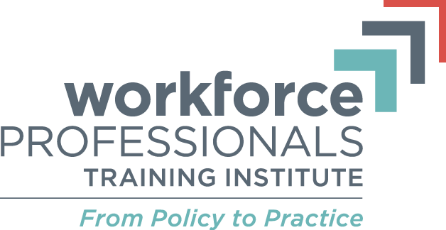We are pleased to announce the release of NYC’s Unsettled Covid-19 Era Labor Market: The Case for an Active Labor Market Policy, developed partnership with the Center for NYC Affairs at the New School and the NYC Employment and Training Coalition (NYCETC), and authored by James A. Parrott and L.K. Moe. The report reveals an uneven New York City labor market, with particularly hard impact on the city’s most vulnerable workers and explores the role of the city’s workforce ecosystem in responding to this challenging economic environment.
While the city continues to recover from the global pandemic and its effects on the workforce, the new report analyzed payroll employment data and found a 2.5% payroll jobs deficit compared to February 2020. Industries – including restaurants, retail, hotels, construction, the arts, and manufacturing – continued to document significant job losses. Those losses have been even more pronounced among lower-income workers and workers of color and disproportionately impacted working parents.
Shifts in the labor market have also weighed heavily on employers struggling with recruiting and retaining workers, most notably in the industries with rapid job growth and those that have yet to reach pre-Covid-19 job levels. In response to these challenges, the city’s workforce development system must play a central role in preparing and connecting workers with emerging economic opportunities, but can only do so with a better-resourced, more sustainable system.
Key findings include:
- New York City’s recovery from pandemic-induced job losses continues to lag compared to the national recovery, with a 2.5% pandemic jobs deficit across the five boroughs, with the City experiencing a 300,000-person drop in the labor force since early 2020.
- The pandemic’s adverse employment impacts continue to show sharp disparities by income, education, age and immigration status — Black workers had an unemployment rate of 9.8 percent, compared to 3.5 percent for white workers, and workers with a high school education or less were 25 percent more likely to lose a job compared to the average worker.
- There continues to be a high demand from employers for workers, especially in sectors that are both lagging (e.g., restaurants, retail, hotels) and fast-growing (e.g., technology and healthcare), while employers struggle with recruitment and retention in the face of changing worker attitudes and expectations.
- Twenty industries — which include higher-paying tech, finance and professional services jobs — added a combined total of 140,000 new jobs between February 2020 and November 2022, but there is a critical need for family-sustaining wages for jobs with lower educational requirements..
- The City’s efforts to provide New Yorkers with access to employment and career development are disjointed and under-resourced. Developing a functional and sustainable workforce development system requires public and private partnerships and increased investment in education and training.
NYC’s Unsettled Covid-19 Era Labor Market follows an earlier report released in September 2022 titled, New York City’s Workforce Landscape: A Network of Programs, Providers and Organizations Foundational for Catalyzing a Robust and Equitable Economic Recovery. In it, the authors surveyed 143 organizations and reported that organizations that provided crucial support during the pandemic faced increased demands but are struggling with fewer resources.
The previous report also highlighted the absence of coordination between public and private partners to share data and definitions of success; a lack of consistent and flexible financial support for effective long-term skill development and career growth; an unclear landing spot for key stakeholders to convene and direct labor market strategy; and the inadequate city and state funding for the human services sector.
Stay tuned for an upcoming set of policy recommendations building upon this report, with an eye toward an equitable recovery and rebound for the city.
Questions? Looking to learn more? Contact Justin Collins, Director of Field Building and Engagement at jcollins@workforceprofessionals.org.

